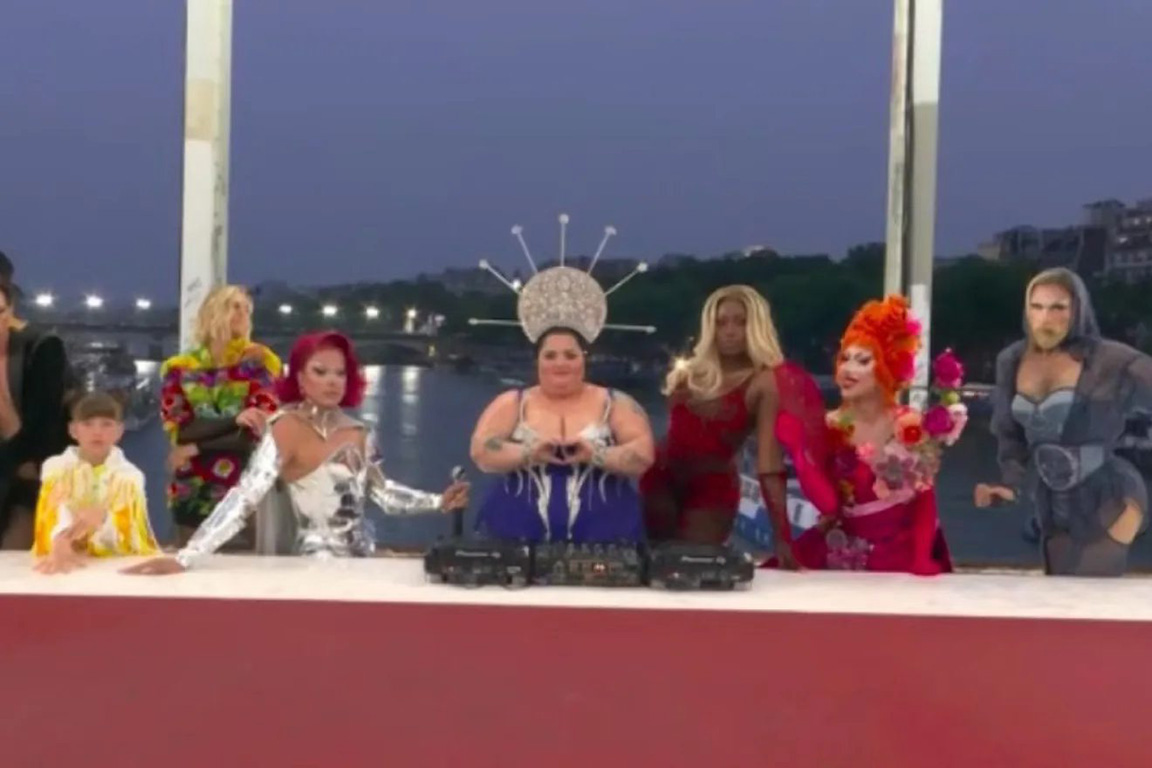
Among the fruits of comfort and privilege is outrage. When I saw the binary-bending da Vinci tableaux during the Olympics opening ceremony last night, I said to myself, “Katy bar the door.” You can find the criticism on line. The producers, it is said, have insulted Jesus and mocked Christians everywhere. People need to have plenty of time on their hands to get angry about something like this.
As for whether artistic director Thomas Jolly intentionally invoked “The Last Supper,” let’s assume he did. Figures lined up at a table facing in one direction and flanking someone with a halo is the giveaway. Jolly said his themes for all the Olympic ceremonies are love and shared humanity. “The history of France is this,” he said, as quoted in The New York Times. “A story that clashes, is rebuilt, and then reconstructed.”
You see what he’s doing there, right? Subversive stuff all the way. And what better way to do that than take John the Evangelist, traditionally understood as author of one of the gospels, sometimes as “the disciple Jesus loved,” one of the giants of Christian tradition — what better way to be disruptive and disrespectful to Christians everywhere than to make St. John himself look like a woman…
Oops, sorry! That’s what da Vinci himself did in the 15th century original. As for Jolly’s version, the only way drag queens can be offensive to Christians in a depiction of the last supper is if you think there’s something offensive about drag queens. So maybe we can see what Jolly might actually be up to. Why a Christian thinks a drag queen would not be as welcome among the apostles of our Lord as anyone else is what Christian educators call a formation question.
Besides, we’re not actually talking about the last supper. We’re talking about “The Last Supper,” the work of a man some believe had been hounded in his native Italy because of his sexuality. Under the protection of the king, da Vinci, accompanied by one of his beloved pupils and assistants, spent the last three years of his life in France. Jolly’s variation on the theme did just what he promised and invoked love and our common humanity, not to mention a nation’s pride at have welcomed and sheltered an artistic legend.
As for the real last supper, during the last few hours before his betrayal, without a long table anywhere near, Jesus loved his friends and fed them his body and blood and washed their feet like a servant. And he told him that if they were to help him save the world, if people were to know who his Father was, above all — this, he said, was the most important thing — they had to love one another. He said how we treated one another in the church would be the way a skeptical and sinful generation would judge the church and, if we did church right, find their way to God themselves.
So church leaders might think about how outraged they want to be at Jolly’s variation on a theme. Jesus has not been disrespected. Jesus can take care of himself. He suffered far worse, including death on a cross, and triumphed. Instead, church leaders should think about the children of God whom they disrespect by suggesting they don’t belong at the table that we purport to set every Sunday in the name of love, our common humanity, and the risen Christ himself. Before outrage, maybe, a little humility, and fear because of the error of our ways.
